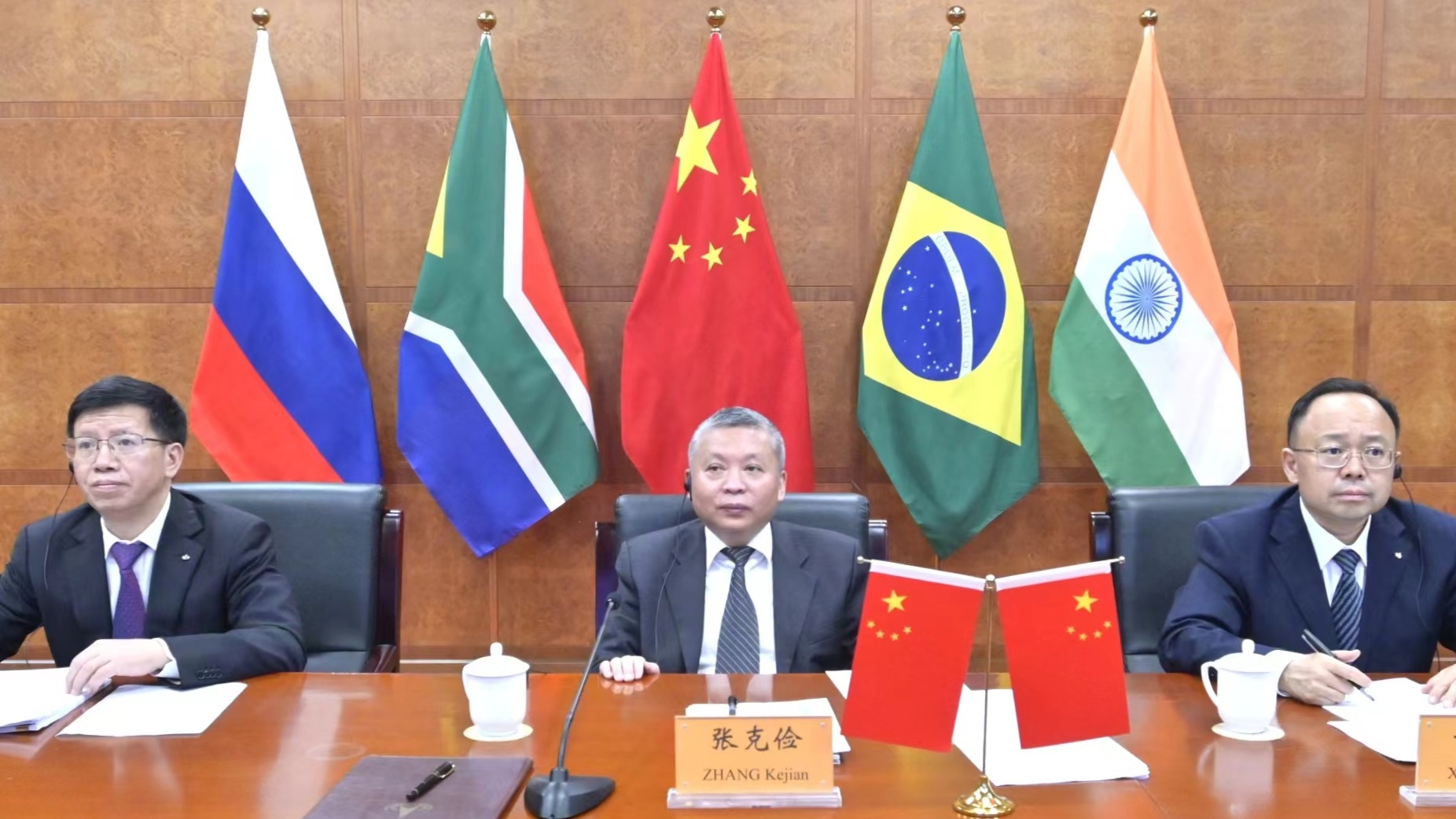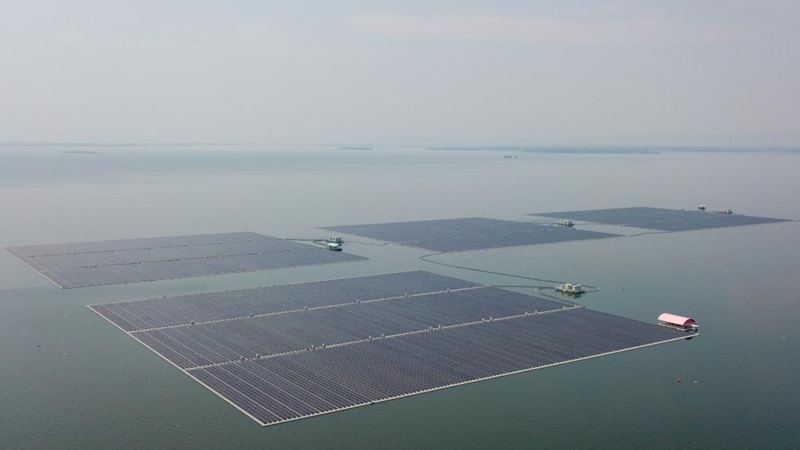The BRICS countries, namely Brazil, Russia, India, China and South Africa, launched a new cooperation committee on Wednesday to share remote sensing satellites and data.
The new committee, composed of space agencies from the five countries, held its first meeting by video on the same day.
The shared data will help the countries to better protect the environment, reduce disaster risks and deal with climate change, according to Zhang Kejian, head of the China National Space Administration (CNSA).
Zhang said the committee involves higher-level cooperation among BRICS countries.
The meeting also passed technical standards of data sharing and the procedures for observation cooperation.
Carlos Augusto Teixeira de Moura, president of the Brazilian Space Agency, said Brazil will also commit to this cooperation.
Dmitry Rogozin, director general of Russia’s Roscosmos, said it’s important for BRICS countries to align their perspectives and coordinate efforts in the satellite constellation, as well as the peaceful use of outer space.
The five space agencies signed an agreement for cooperation in remote sensing satellite data sharing in August 2021.
The constellation contains six existing satellites from the five countries: Gaofen-6 and Ziyuan III 02, both developed by China, CBERS-4, jointly developed by Brazil and China, Kanopus-V type, developed by Russia, and Resourcesat-2 and 2A, both developed by India.
It also includes five ground stations in each member country.
China’s ground station for the constellation was established on April 24, China’s Space Day, in Wenchang, south China’s Hainan Province.
“This is the first time an international cooperation mechanism in Earth observation data reached this kind of scale and depth,” said Meng Lingjie, deputy chief of the Earth Observation Data Center of the CNSA.
He said shared satellite data could prove instrumental in issues of concern for developing countries.
“For example, in the pilot program for each country, the constellation will help address problems with food crises. Issues with food production are key for many. With its coverage, precision and timelines, the satellite constellation is good for mapping out grain output and monitoring damage from natural disasters and pests.
The CNSA also said it will put the BRICS constellation to better use and increase the number of satellites and ground stations.
Space cooperation between China and other countries
Gan Yong, an official from the Department of International Cooperation of the CNSA, said “BRICS cooperation in space will eventually facilitate high-quality partnership among BRICS countries.”
Gan also said the CNSA’s international cooperative endeavors have not swayed in the last two years, including in the recent period, even with the changes in the world situation.
“Since 2020, the world has faced unprecedented challenges including the COVID-19 pandemic. Those challenges have changed the landscape of space cooperation. But the CNSA and the Chinese government have been standing with their principle of equality and mutual benefits … and have been promoting international cooperation.”
Gan said the CNSA has continued to promote cooperation in lunar probe and deep space exploration, including in the Chang’e-6 and the following Chang’e-7 missions. He said the CNSA is working with international partners for jointly developing the international moon base for science.
The administration has also ramped up cooperation in satellite use, including the BRICS constellation and the Belt and Road Space Information Corridor.
“Recently, the global situation has affected the field of space development. But we believe so long as we aim to work together and take each other’s concerns in mind, we will achieve more in international cooperation and space exploration,” he told CGTN.

 World7 days ago
World7 days ago
 News5 days ago
News5 days ago
 News5 days ago
News5 days ago
 News6 days ago
News6 days ago
 News5 days ago
News5 days ago
 News4 days ago
News4 days ago
 News6 days ago
News6 days ago
 News6 days ago
News6 days ago


















